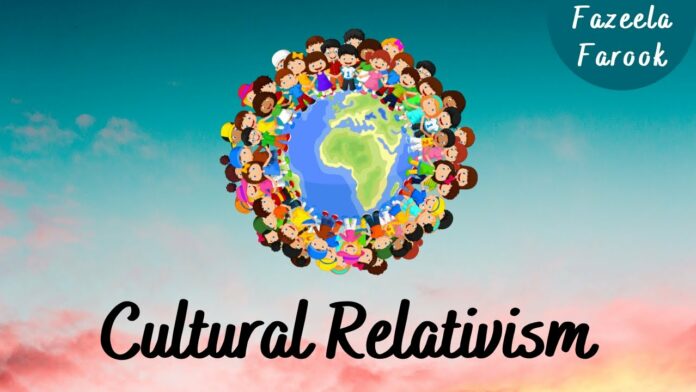Introduction
Cultural relativism is a philosophical concept that recognises and respects the diversity of cultural practices, beliefs, and values across different societies. It suggests that no culture is inherently superior or inferior to another, and that each culture should be understood and evaluated within its own context. In this article, we delve into the concept of cultural relativism, its implications, and its significance in fostering cross-cultural understanding and respect.
Understanding Cultural Relativism
Cultural relativism is the idea that cultural norms and values are not absolute or universal but are instead shaped by the specific cultural context in which they arise. It acknowledges that what is considered right or wrong, moral or immoral, can vary between different cultures. Cultural relativism encourages individuals to suspend their own cultural biases and judgments when examining or interacting with other cultures.

Key Aspects of Cultural Relativism
Cultural Diversity
Cultural relativism highlights the vast diversity of human cultures and emphasises the importance of understanding and appreciating this diversity. It recognises that cultures develop unique practices, customs, and belief systems that reflect their history, environment, and social structures.
Ethical Implications
Cultural relativism challenges the notion of universal ethics or moral standards. It suggests that moral judgments should be examined in the context of a particular culture, rather than applying one’s own cultural values as a universal yardstick. This perspective encourages individuals to approach ethical questions with cultural sensitivity and open-mindedness.
Avoiding Ethnocentrism
Ethnocentrism refers to the tendency to evaluate other cultures according to the standards and values of one’s own culture. Cultural relativism encourages individuals to recognise and avoid ethnocentric biases, enabling a more objective and empathetic understanding of different cultural practices.
Promoting Dialogue and Understanding
Cultural relativism promotes dialogue and mutual understanding between cultures. It encourages individuals to engage in respectful exchanges, listen to diverse perspectives, and challenge preconceived notions. By fostering open-mindedness and empathy, cultural relativism contributes to intercultural harmony and cooperation.
Cultural Relativism and Human Rights
Critics of cultural relativism argue that it can potentially undermine universal human rights standards. They contend that certain practices, such as human rights violations, should be universally condemned regardless of cultural differences. Supporters of cultural relativism, on the other hand, assert that understanding cultural context is crucial in addressing human rights issues effectively, and that imposing one’s own cultural values may lead to cultural imperialism.
Frequently Asked Questions (FAQs)
1. Does cultural relativism mean that anything goes?
No, cultural relativism does not imply that anything goes or that all cultural practices are equally valid. It is a framework for understanding cultural differences and promoting cultural sensitivity, but it does not condone or justify harmful or unethical actions.
2. Does cultural relativism mean that we should tolerate all cultural practices?
Cultural relativism does promote tolerance and respect for cultural diversity. However, it does not mean that all cultural practices should be blindly tolerated. Ethical considerations and human rights should still serve as important guiding principles when evaluating cultural practices.
3. Can cultural relativism coexist with human rights?
Cultural relativism and human rights are often seen as contrasting viewpoints. However, many scholars argue that cultural relativism can be compatible with human rights by recognising the importance of understanding cultural context while still upholding fundamental human rights principles.
4. Does cultural relativism discourage social progress or critique of cultural practices?
Cultural relativism does not discourage social progress or critique of cultural practices. It encourages critical reflection and dialogue about cultural norms and values while considering the specific cultural context. It recognises that cultures evolve and change over time, and that constructive criticism can contribute to positive transformations.
Conclusion
Cultural relativism invites us to embrace the diversity of human cultures and recognise that no single culture holds a monopoly on truth or morality. By adopting a culturally sensitive and open-minded approach, we can foster understanding, dialogue, and respect across cultural boundaries. Cultural relativism does not require us to abandon ethical principles or human rights, but rather encourages us to engage in thoughtful and empathetic exploration of cultural differences.
============================================


